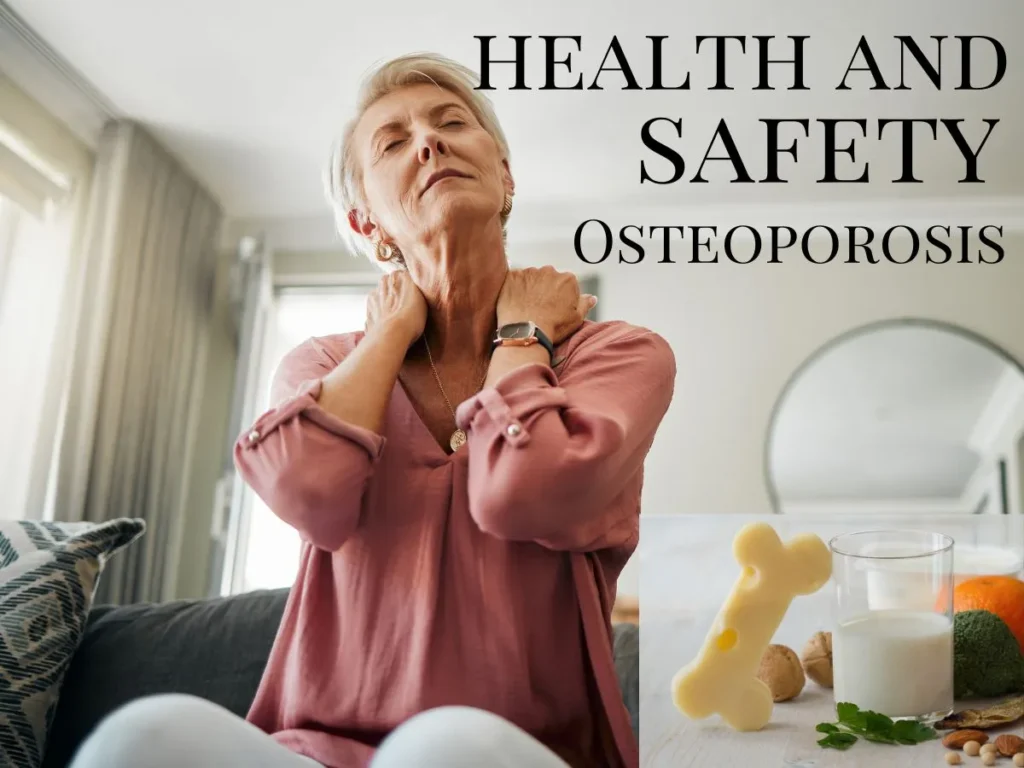Table of Contents
ToggleEssential Bone Health Tips for Senior Citizens: Preventing Osteoporosis and Reducing Fracture Risks
Introduction
Aging brings wisdom and experience, but it also comes with challenges, particularly regarding bone health for senior citizens. As we grow older, our bones tend to become more fragile, leading to conditions such as osteoporosis. This article aims to provide comprehensive advice on managing bone health and preventing fractures for senior citizens.
What is Osteoporosis?
Osteoporosis is a condition where bones become weak and brittle. This fragility makes them susceptible to fractures even from minor stresses like bending or coughing. Common fracture sites include the hip, wrist, and spine. Bones are living tissues that constantly undergo remodeling, involving the breaking down of old bone and the formation of new bone.

Understanding the Risk of Fractures
The risk of fractures can be explained by a simple formula:
Risk of fracture = External damage force / Bone density
As we age, our bone density decreases, increasing the risk of fractures. Hence, it is crucial for the elderly to take preventive measures against accidental injuries. Even if you are physically healthy, you should take extra precautions as candles increase on your Birthday Cake.
Preventive Measures to Reduce Accidental Injuries
Be Careful, More Careful, And Extra Careful Everytime.
This mantra encapsulates the essence of preventing falls and fractures. Here are some specific measures:
Avoid Standing on Chairs, Stools or ladders
Never stand on a chair or stool to reach for something kept at a higher place/almirah etc. Even a low stool/table can be risky.
Avoid Going Out on Rainy Days
Rainy weather increases the risk of slipping and falling. It’s best to stay indoors. Wear slippers/ footwear with firm grips.
Be Cautious in the Bathroom
Bathrooms can be hazardous, especially when wet. Ensure that the floor is dry and use handrails if necessary.
Don’t Wear Lowers, Pants or Underwear in the Bathroom
For women, avoid wearing pants, lowers or underwear in the bathroom. Instead, change in a separate room while seated to prevent slips.
Keep the Bathroom Floor Dry
Make sure the bathroom floor is dry when using the toilet. Install handrails for additional support.
Clean Up Clutter Before Going to Bed
Ensure that there are no obstacles on the floor that could cause a fall during the night.
Get Up Slowly During the Night
When getting up in the middle of the night, sit on the bed for a few minutes before standing up. Always turn on the light first.
Keep the Toilet Door Open
If feasible, do not close the toilet door from the inside, especially at night. Install an alarm bell to summon help if needed.
Sit Down to Wear Pants
Always sit on a chair or bed when putting on pants to avoid losing balance.
Stretch Out Hands During a Fall
In case of a fall, try to stretch out your hands to support yourself. It’s better to fracture your forearm than your hip.
Maintain a Healthy Weight
Especially for women, keeping your weight within permissible limits is crucial. Avoid eating leftovers and practice portion control.
Diet and Nutrition
Increasing Bone Mass Through Diet
A balanced diet rich in calcium and vitamin D is essential for bone health. Incorporate dairy products, soy products, and seafood, particularly small shrimp skins, into your diet.
Benefits of Sun Exposure
Outdoor activities with sun exposure help convert cholesterol in the skin to vitamin D, promoting calcium absorption and bone health.
Exercise and Physical Activity
Importance of Regular Exercise
Engaging in regular exercise, like walking, helps maintain bone strength and overall health. Find activities that are safe and enjoyable.
Safety at Home
Ensure Non-Slip Floors
Install non-slip mats in bathrooms and use handrails on stairs to prevent falls.
Conclusion
Taking preventive measures against falls and maintaining a healthy lifestyle are vital for elders to ensure their well-being. One fall can significantly impact an elderly person’s life, so it’s crucial to be vigilant and proactive.